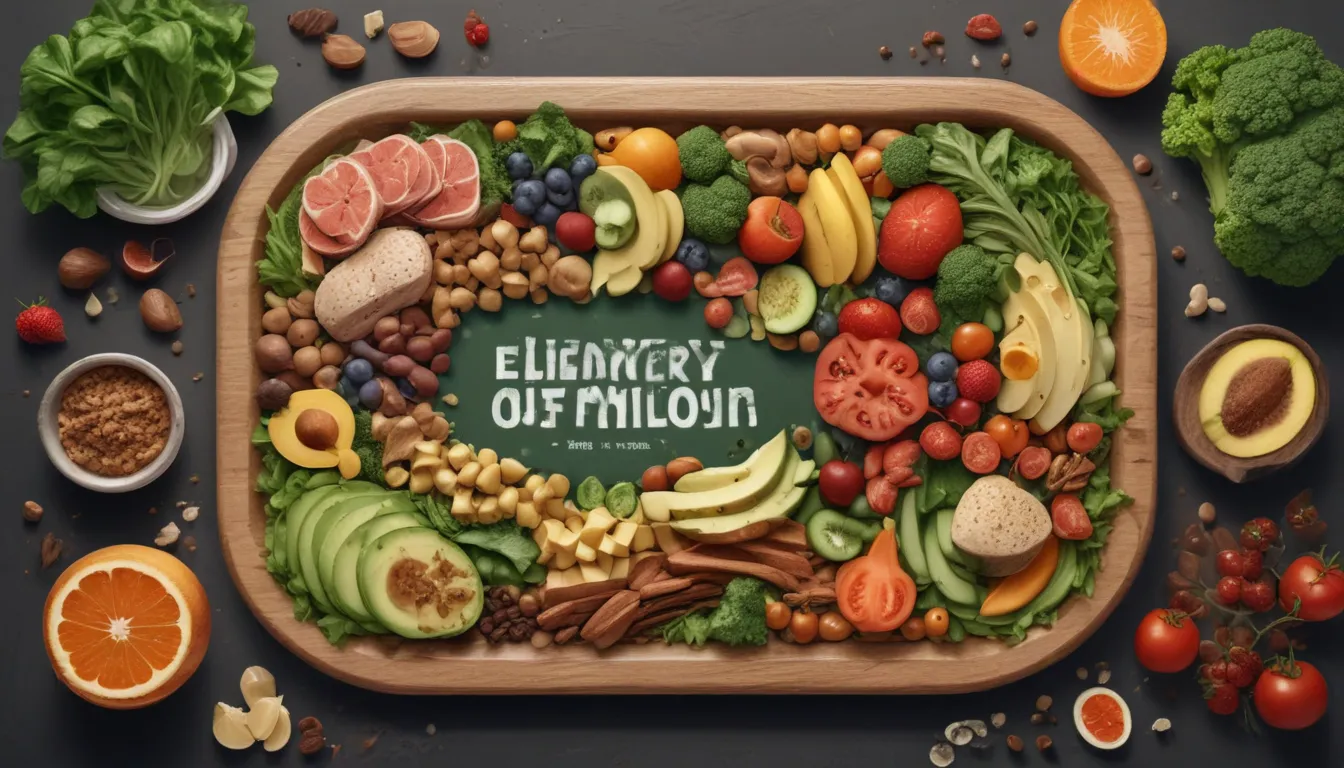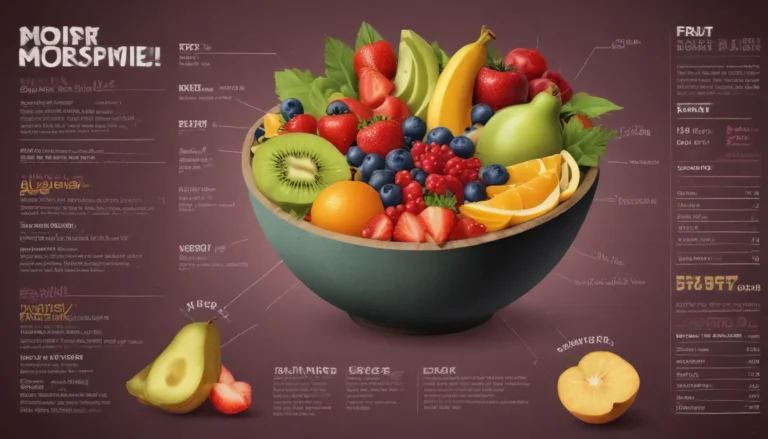The pictures in our articles might not always show exactly what the text is talking about. We use these images to make the article more interesting and eye-catching. They are there to add to the text, but not to replace it or show every detail.
Are you curious about the nutritional value of the foods you eat every day? Whether you're aiming for a balanced diet, looking to shed some pounds, or simply trying to make healthier choices, understanding the nutritional content of your meals is crucial. In this article, we will delve into the nutrition facts of 11 common foods that you may include in your daily diet. From nutrient-packed superfoods to essential vitamins and minerals, we will explore the benefits of these everyday foods and how they can contribute to your overall well-being.
The Nutritional Powerhouses:
Incorporating nutrient-dense foods into your daily diet can provide numerous health benefits and support your overall well-being. Let's take a closer look at some key takeaways:
- Avocado, kale, Greek yogurt, blueberries, and salmon are superfoods packed with essential nutrients like healthy fats, protein, and antioxidants.
- Foods like spinach, sweet potatoes, chia seeds, almonds, and dark chocolate are also beneficial for your health and well-being.
Unveiling the Nutrition Facts:
Avocado: A Source of Healthy Fats
Avocados are rich in monounsaturated fats, which are heart-healthy and can help lower bad cholesterol levels. They also provide essential nutrients such as vitamins K, C, E, and B6.
Kale: A Nutrient Powerhouse
Kale is loaded with vitamins A, C, and K, as well as fiber. This leafy green vegetable supports digestion, boosts immunity, and promotes healthy skin.
Greek Yogurt: High in Protein
Greek yogurt is a versatile food known for its high protein content, making it an excellent choice for those looking to build muscle or maintain a healthy weight. It is also rich in calcium and probiotics, supporting gut health.
Blueberries: Antioxidant Powerhouses
Blueberries are packed with antioxidants that help to fight free radicals and protect your body from oxidative stress. They are also linked to improved brain function and cardiovascular health.
Quinoa: A Complete Protein Source
Quinoa is a gluten-free grain that contains all nine essential amino acids, making it a complete protein source for vegetarians and vegans. It is also rich in fiber, vitamins, and minerals.
Salmon: Rich in Omega-3 Fatty Acids
Salmon is a fatty fish known for its high content of omega-3 fatty acids, essential for brain health and reducing inflammation. It also provides a good amount of high-quality protein.
Almonds: Packed with Nutrients
Almonds are a great source of healthy fats, fiber, and vitamin E. They are also rich in antioxidants and minerals like magnesium and potassium, which are essential for maintaining heart health and improving digestion.
Spinach: A Nutrient-Dense Leafy Green
Spinach is a nutrient powerhouse packed with vitamins and minerals like iron, calcium, and magnesium. It is low in calories but high in fiber, making it an excellent choice for weight management and overall well-being.
Sweet Potatoes: Rich in Beta-Carotene
Sweet potatoes are vibrant root vegetables loaded with beta-carotene, which converts to vitamin A in the body. They are also high in fiber and provide important nutrients like vitamins C and B6.
Chia Seeds: A Source of Fiber and Omega-3 Fatty Acids
Chia seeds are small but pack a nutritional punch. They are an excellent source of fiber, omega-3 fatty acids, and antioxidants, supporting digestion, regulating blood sugar levels, and reducing inflammation.
Dark Chocolate: Health Benefits
Dark chocolate with a high percentage of cocoa is rich in antioxidants and has several health benefits. Consuming moderate amounts has been linked to reduced inflammation, improved heart health, and enhanced mood.
Conclusion: Embrace a Healthier Lifestyle
In conclusion, being aware of the nutrition facts of your daily eats is vital for maintaining a healthy lifestyle. By making informed choices and prioritizing nutrient-dense foods, you can ensure that your body receives the necessary nutrients to function optimally. Incorporating a balanced diet filled with fruits, vegetables, lean proteins, whole grains, and healthy fats can have a positive impact on your overall well-being. Remember to stay hydrated, be mindful of portion sizes, and make nutrition a priority in your daily routine.
Frequently Asked Questions:
-
What are some examples of daily eats that are rich in nutrients?
Fresh fruits and vegetables, whole grains, lean proteins, healthy fats like avocados and nuts -
How can I ensure I’m getting the right balance of nutrients in my daily eats?
Include a variety of foods from all food groups in your meals and pay attention to portion sizes -
Are there specific nutrients to focus on in your daily eats?
Prioritize fiber, vitamins (such as vitamin C, D, and B vitamins), minerals (like iron and calcium), and omega-3 fatty acids -
How can I make my daily eats more nutritious?
Incorporate whole, unprocessed foods, reduce added sugars and unhealthy fats, cook at home more often, and try new healthy recipes -
Can I still enjoy treats and indulgences in my daily eats?
Yes, find a balance by enjoying treats in moderation as part of a healthy lifestyle
Trust in Our Commitment to Quality
Our dedication to delivering accurate and engaging content is reflected in the wealth of diverse insights and information contributed by real users like you. Each fact on our site undergoes meticulous review by our editors to ensure credibility and authenticity. Explore and learn with us, knowing that our commitment to quality and reliability is at the core of everything we do.






